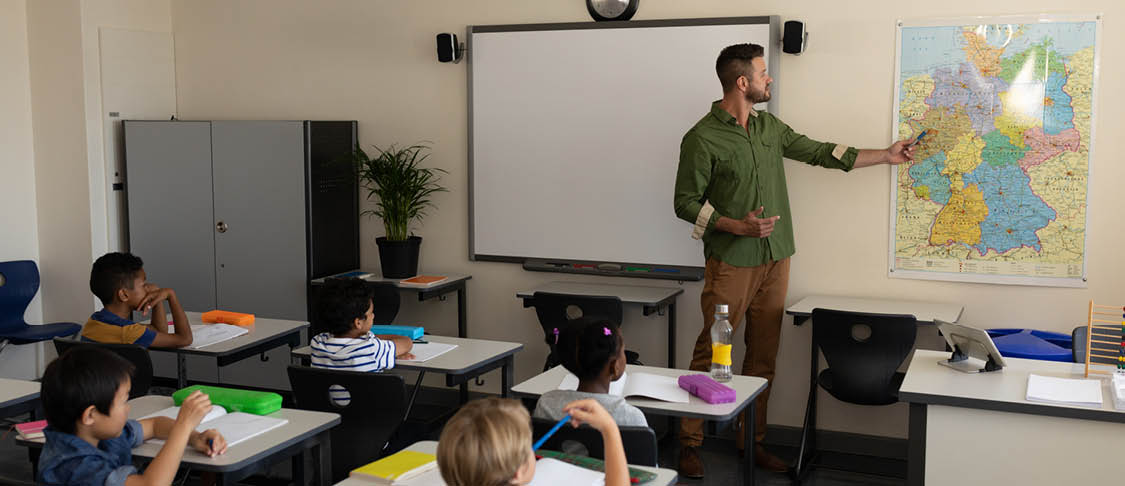
What is Global Learning and Engagement?
Global learning and engagement (GL&E) fosters curiosity and understanding about the world. GL&E contributes to the development of knowledge and skills for living and working in an interconnected, peaceful, sustainable and environmentally secure international community. Through GL&E, learners should develop their self-awareness and the ability to engage and interact with people who may not share the same cultural, linguistic, faith-based beliefs and perspectives. Schools that adopt a whole school approach to GL&E equip students for a globalised future and to be the next generation of leaders, innovators, entrepreneurs, and globally-ready employees.
Global citizenship means an awareness of our interconnectedness with people and environments around the globe and their contribution to a global society and economy. When students develop a sense of global citizenship, they learn to respect key universal values such as peace, sustainability and upholding the rights and dignity of all people.
Reference: Monash University and Australian Government (2021) Toolkit - Supporting Australian schools to build global engagement.
Global citizen is someone who is aware of and understands the wider world – and their place in it. They take an active role in their community and work with others to make our planet more peaceful, sustainable and fairer.
Reference: Oxfam - What is global citizenship?
Why global learning and engagement?
Global learning and engagement is vital for living in a more complex, interconnected and competitive world. The global pandemic has taught us how connected and interdependent the world is while highlighting the importance of collaboration, critical literacy and creative thinking. Building on and developing students curiosity about the world and their ability to work with others in ways that embrace diversity and change are significant assets for young people in today's world.
Equipping students with these skills is a key element in preparing young Victorians, regardless of their background or where they live, for today's challenges and opportunities. Globalisation of jobs, trade and economies means that young Australians will increasingly work globally, and have to navigate linguistic and cultural diversity both at home and abroad. The pandemic has also taught us is that technology will be used more routinely to connect, collaborate and problem solve globally and means that students' need the skills and confidence to effectively use and navigate the online environment.
"The modern workplace is increasingly globalised and employers must find employees who are not only technically proficient, but also culturally astute and able to thrive in a global work environment."1
Learning about the world is embedded in the Victorian curriculum and with an enhanced emphasis on engagement with the world, particularly developed through intercultural capability, critical and creative thinking, ethical capability and personal and social capabilities, schools will better prepare our students to be successful local and global citizens.
"While learning about other countries has always been a feature of education, schools must now 'internationalise' so that a global outlook is fundamental, not incidental, to their endeavours.".2
The Alice Springs (Mparntwe) Declaration
The ambition of the Australian education system is to promote excellence and equity by collaborating internationally to share best practice and help young Australians learn about and engage with the world. This helps ensure that education promotes and contributes to a socially cohesive society that values, respects, and appreciates different points of view and cultural, social, linguistic, and religious diversity.
The Alice Springs (Mparntwe) Declaration (2019) sets out the vision for education in Australia for the next 10 years and commits to improve educational outcomes for young Australians. It is an agreement between all state, territory and federal education ministers and builds on past declarations signed in Hobart, Adelaide and Melbourne over the past three decades.
In terms of global learning and engagement Goal 2 of the Declaration points to the importance of nurturing informed and responsible global and local members of the community who value and celebrate cultural and linguistic differences, and engage with others globally, particularly with our neighbours in the Indo-Pacific regions. The Declaration highlights the importance of fostering creative individuals who understand their responsibilities as local and global citizens with attributes such as honesty, empathy, loyalty, responsibility, and respect for others.
These skills and attributes can be developed through the Victorian F-10 where practical skills such as Information Communication and Technology ICT) and problem solving alongside critical and creative thinking, intercultural understanding and capability, and personal and social capabilities.
Reference: Australian Government The Alice Springs (Mparntwe) Education Declaration.
To learn more about the department's programs, see: Equipping Globally Ready Students brochure.
1 British Council: Culture at Work Report
2 Connected To The World Report, 2015.
Supporting Australian schools to build global engagement - Toolkit
The Supporting Australian schools to build global engagement - Toolkit was developed by Monash University and funded by the Australian Government to support the implementation of the National Strategy for International Education 2025, a 10 year plan for developing Australia's role as a global leader in education, training and research.
Released in 2021 the Toolkit provides an up-to-date resource for schools to facilitate global learning and engagement and is framed around seven factors for success:
- a whole-school approach to global engagement
- leadership
- teacher capacity
- curriculum and pedagogy
- building support for global engagement
- community and parent engagement
- monitoring progress with global engagement
For more information, see: Supporting Australian schools to build global engagement - toolkit or visit
International Education Online.
How to get involved?
For information on how to participate in our global learning and engagement programs, see: Victorian Young Leaders and
Student engagement programs.




